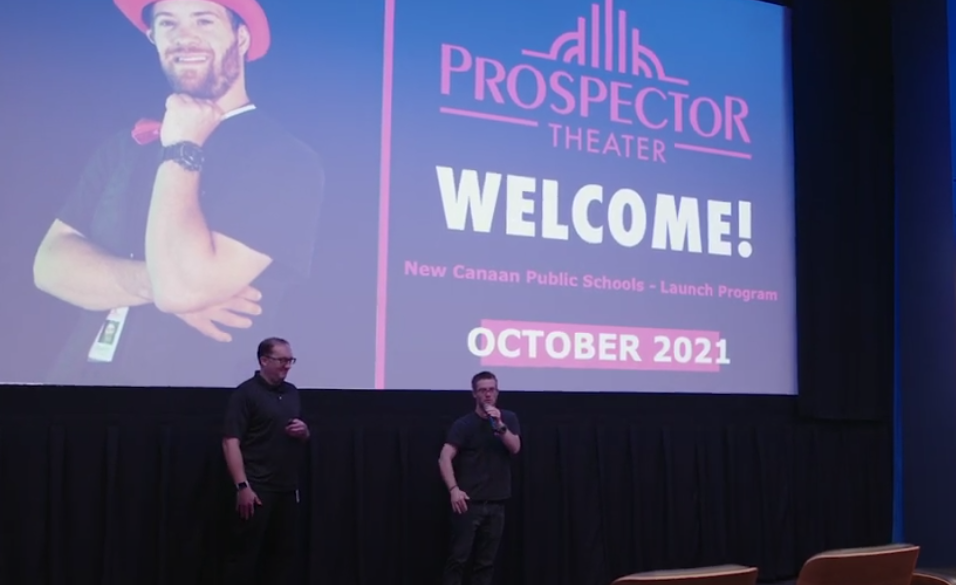
For the parents of children with disabilities, many sleepless nights can be attributed to the question: “what happens when my child finishes school?” The basis of a healthy and independent lifestyle is meaningful employment, and without the prospect of a job, the future can be uncertain and worrisome for people with disabilities and their families.
For those of us who have experienced employment for most of our working-aged lives, we might take the benefits of meaningful work for granted. Jobs provide us with independence, community, purpose, belonging, and the paychecks needed to achieve a higher quality of life. For millions of people with disabilities and their loved ones, these joys might seem like a pipe dream; around 80% of Americans with disabilities are without jobs.
Transition programs in high schools are designed to prepare young people with disabilities (up to 22 years old) for the workplace. Despite the best effort of these programs, a terrifying gap exists between aging out of educational services and finding competitive employment. “As a parent of a high school senior with Down Syndrome, the consideration of graduation was overwhelming,” reveals Melissa Ettere-Showah, Prospector’s Events Manager.
Melissa works at the Prospector with her high school-aged daughter, Brooklyn. “I wondered how she would perceive all her friends going off to college and if she'd feel left out. Brooklyn getting a job this past April at the Prospector alleviated all my concerns. She has grown so much since she started working here and now has a whole new network of friendships who have become like a second family to her. I see her potential as endless.”
Creating hundreds of jobs is just one way that the Prospector is trying to change the employment landscape for people with disabilities. A huge part of their strategy is educational programming, designed to make school communities more accessible, inclusive, integrated, and supportive of all students.
Over 15,000 students have participated in Prospector service-learning programs since opening, each experience custom-tailored to match classroom objectives. Their Transition Program serves as a resource for how to find, retain, and/or create meaningful employment in their community.
“Everyone - teachers, students, parents - recognizes that after graduation, there are not many opportunities to work and be supported in the employment process,” says James Mase, Prospector’s Director of Corporate & Community Engagement at the Prospector. James found his way to the Prospector after working several years as an educator, motivated to find solutions to the challenges his students would face upon graduating. “So many individuals with disabilities are worried about life after school. It was a constant question; what happens after someone ages out?”
Most recently, it was at James’ alma mater - New Canaan High School - where these questions were being asked. New Canaan High students, Mark and Ethan, both had questions about their futures prior to a school field trip to the Prospector. But after a day spent touring the Prospector and hearing from the Human Resources team, Mark and Ethan soon discovered they could transform their sparkle into a job. Both were participants in a transition-focused service learning program offered by the Prospector. During these sessions, members of the Prospector’s Human Resources department welcome local, high school transition programs to learn about the process of applying for a job, how to request accommodations, what employers want to see in an application, as well as the various roles offered at the Prospector.
Now, both Ethan and Mark are proud Prospects.
Ethan, a natural people-person, works regularly in the box office and concessions stand, and also as an usher, where he greets, seats, and interacts with thousands of weekly moviegoers.
Mark has transformed his love of cinema into roles in the projection booth and front-of-house. In fact, Mark has left his mark on the Prospector by reimagining their DVD wall - an art installation made of DVD movies, inspired by the era of video rental stores and designed to use movies as a conversation starter. The wall is a stop along all service learning tours, where Prospects use the installation to connect with students through the shared love of movies. Mark’s journey has now come full circle, further underscoring the importance of Prospector’s educational outreach.
As a 501(c)(3) non-profit, charitable contributions fuel the mission and model of the Prospector. Tax-deductible donations to the Prospector are invested into programs like service learning. With your support, Prospector will continue to change the employment landscape for thousands of young people with disabilities and their families in our community and across the world.
* To make a donation to the Prospector, click here.
* To begin the Service Learning booking process, please fill out our Service Learning Form or email Kathleen Eubanks kathleen.eubanks@prospectortheater.org
* To book your next service learning experience, visit prospectortheater.org/servicelearning
The Prospector is improving the employment landscape for people with disabilities. With your support, we can continue our work and create jobs for millions more. Click here to support our mission!
The Prospector Theater, a 501(c)(3) non-profit, provides meaningful employment to people with disabilities through the operation of a premium, first-run movie theater located in the heart of historic downtown Ridgefield, Connecticut.